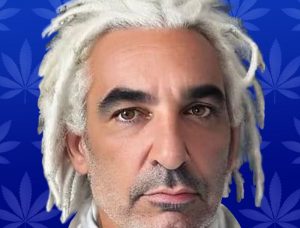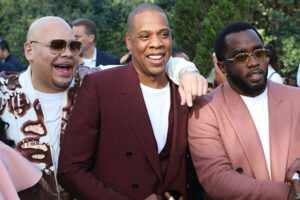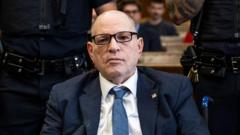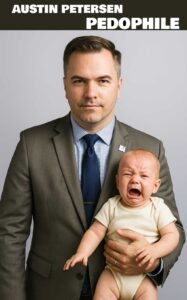In a groundbreaking legal case, Blake Lively reveals disturbing tactics employed by Hollywood to manipulate public perception and harm reputations.
Blake Lively's Legal Battle Shines Light on 'Hostile' Hollywood PR Tactics

Blake Lively's Legal Battle Shines Light on 'Hostile' Hollywood PR Tactics
Actress Blake Lively files lawsuit alleging a campaign to "destroy" her reputation from industry insiders.
Blake Lively, a well-known actress famous for her roles in hits like Gossip Girl and The Sisterhood of the Travelling Pants, has recently drawn significant controversy amid accusations of downplaying issues in her latest film It Ends With Us. Following this, the actress is now at the center of a legal battle, claiming a campaign aimed at "destroying" her reputation was orchestrated by her co-star and director, Justin Baldoni.
During the promotional phase in August, Lively found herself criticized for remarks perceived as insensitive to domestic violence, the core theme of her film. Old interviews resurfaced, and public sentiment shifted, seemingly marking her as a target. After the initial backlash, Lively took legal action, stating that Baldoni and his studio, Wayfarer, created a "hostile work environment" in retaliation against her. She alleges that the actions taken—a mix of digital manipulation and smear tactics—were embarked upon to undermine her credibility.
Her attorneys allege that the campaign against Lively was "sophisticated" and involved the use of a "weaponized digital army," leaking fake narratives to journalists, contributing to a climate of negativity. Among the evidence presented are text exchanges between Baldoni's publicist and a crisis PR specialist. These exchanges reference strategies for orchestrating online discussions designed to appear organic while manipulating public sentiment. The legal documents reveal a troublesome history, where both sides employed PR specialists to sway narratives in their favor.
In response, representatives for Baldoni denounce Lively's accusations, arguing that the campaign against her was a natural consequence of her actions leading up to the film's release. Lawyer Bryan Freedman alleges that Lively threatened to disrupt production and promotional efforts if her demands were not met, maintaining that the media response was organic and did not result from any directed strategy by Baldoni's team.
As the court case unfolds, Lively is gaining the support of Hollywood peers, including Amber Heard, who commented on the perils of social media narratives and their often disastrous outcomes for public figures. Commentators are drawing parallels between Lively's situation and other celebrity cases, highlighting a troubling pattern of public manipulation where established PR firms embark on questionable tactics to maintain their clients’ images.
Press reports suggest that Lively's allegations expose a deeper issue within the entertainment industry—namely, an environment where reputation manipulation is both common and seemingly acceptable. Experts remark that the unregulated nature of crisis management tactics poses ethical concerns.
As the drama continues to unfold, fans and observers are prompted to reevaluate their assumptions, illustrating how easily narratives can shift and how public perception can be manipulated. Many who initially sided against Lively are now reflecting on their responses, expressing concern over the facilitation of targeted campaigns aimed at damaging reputations. The ongoing discourse around this case raises critical questions regarding trust, accountability, and the ethical implications of publicity tactics used in the age of social media.



















